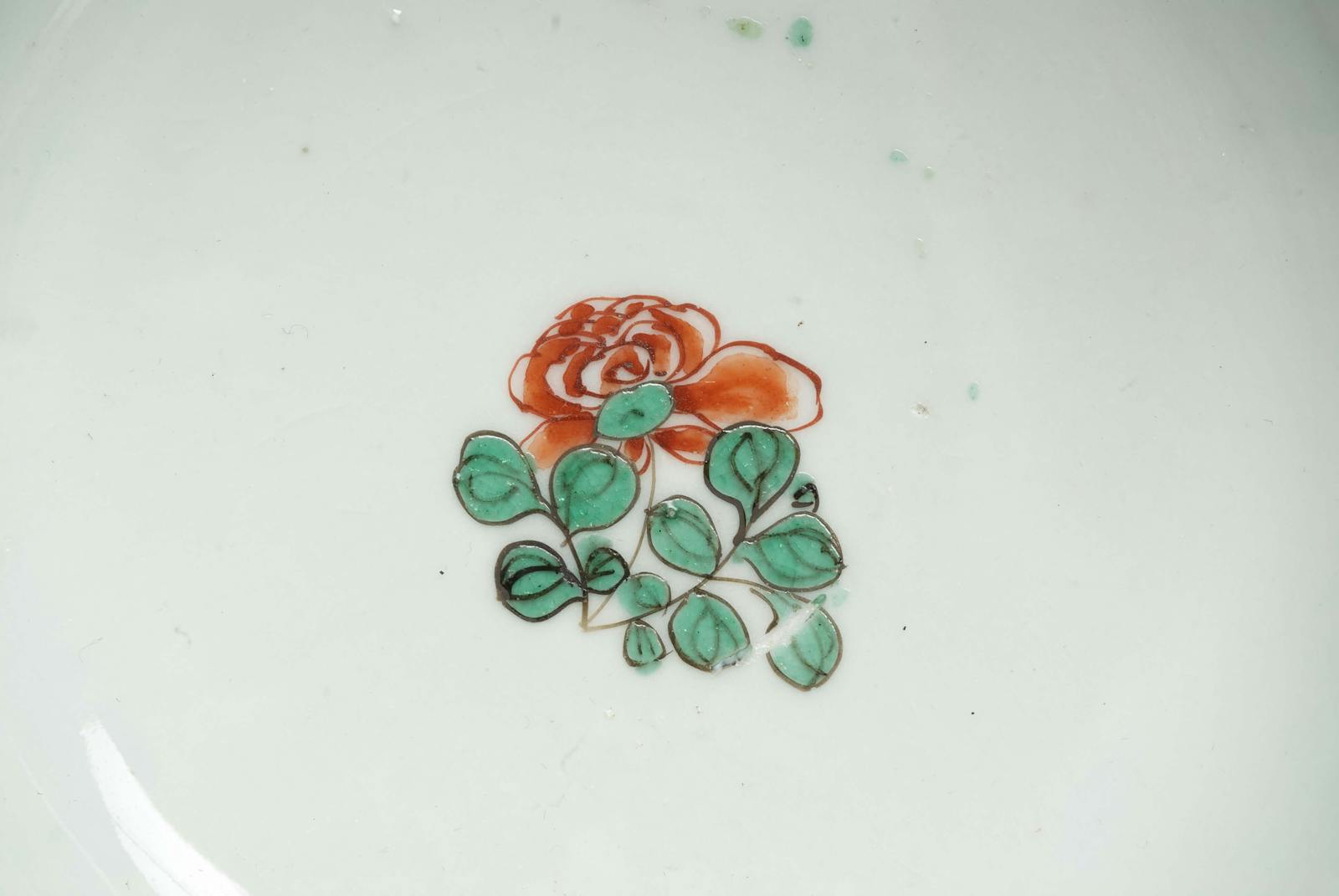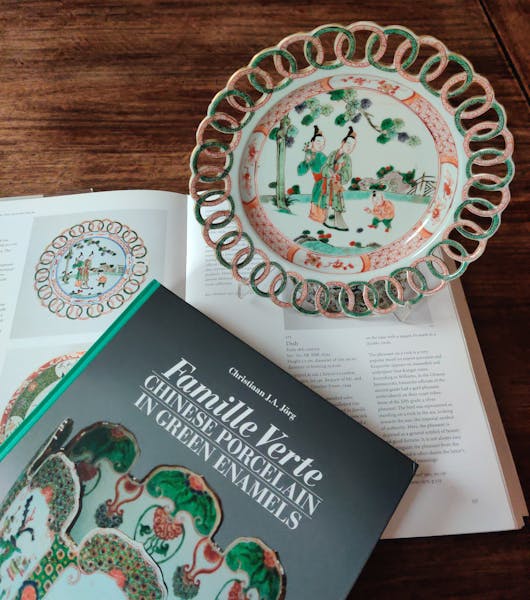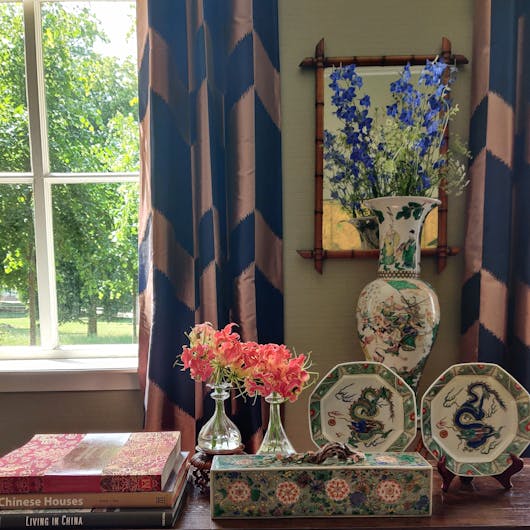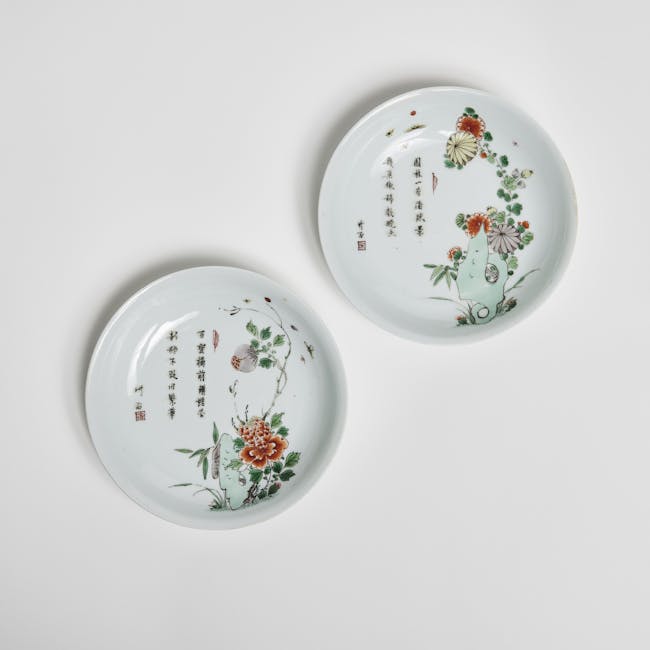Educate & Inspire
Famille Verte Porcelain


Educate
This dish, with an unusual openwork rim, is decorated in Famille Verte enamels. Produced in the Kangxi Period between 1685-1725, Famille Verte porcelain is appropriately named after its predominantly green colour palette. These bright translucent overglaze enamels were painted onto a high fired body and then re-fired at a lower temperature (800 C). At the time this new, modern type of ware, enjoyed a widespread appeal and was produced for the domestic Chinese market as well as for export to Europe.
Despite the importance of this group of porcelain, the first book specifically devoted to this subject was the catalogue by Prof Christiaan Jörg - Famille Verte: Chinese Porcelain in Green Enamels - which accompanied an exhibition in the Groninger Museum in 2011. This book is still the leading reference work in this field to date.
Similar plates are in the collection of the Groninger Museum as well as the Rijksmuseum (Amsterdam).

Inspire
Bright and colourful, Famille Verte porcelain has always had a very international appeal. The patterns often feature flowers, animals and birds, as well as sweeping figural scenes set in landscapes or gardens. Their amazing detail is always a wonder to look at!
Thank you for enquiring about this artwork. Please enter the form below and we will contact you swiftly.

